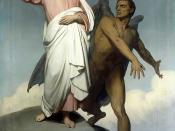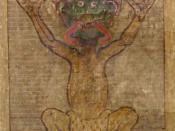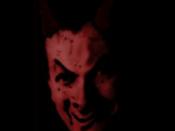Deities and Lesser SpiritsGods represented in mythology possess different characteristics. Lesser gods or deities may have ultimate power, finitude, good, or evil tied to the stories that tell about their lives and existence. The purpose of this paper is to define the terms ultimate power, finitude, good and evil and identify four mythological deities that personify these terms.
Apollo, who is also referred to as Apollon, was a Greek Olympian god. His mother was Leto, a bride of Zeus. Apollo was a god of prophecy, healing, disease and plague, music, song and poetry, archery and he protected young life. He had ultimate power as a god. Ultimate power is defined as ÃÂGods are considered immortal and in control of lesser life forms (Theoi Greek Mythology, 2000-2007). Apollo had invented the flute and the lyre. Suprisingly, he had built the walls of Troy while simply playing the lyre. The Theoi Greek Mythology (2000-2007) stated, ÃÂApollo guarded the cattle of Laomedon in the valleys of Ida.ÃÂ
In these two examples, it appears he in fact was the god of music, song and protection of young life.
Finitude means being finite. Therefore, a god that personifies finitude is one whom only existed for a limited time (Language of Light Glossary, n.d.). The god that was chosen that represents finitude is Christ. Christ represented God during his tenure on earth and all the finite limitations that humans, created by God, face. Life with its choices puts a black or white finish on an individualÃÂs moral standing. Death representing the end of the opportunity to make those choices was experienced by Christ himself. Christ while interacting with both the Jews and Gentiles admonished individuals for a variety of sins and life styles that were uncharacteristic of a godly life. Measures were not applied...


